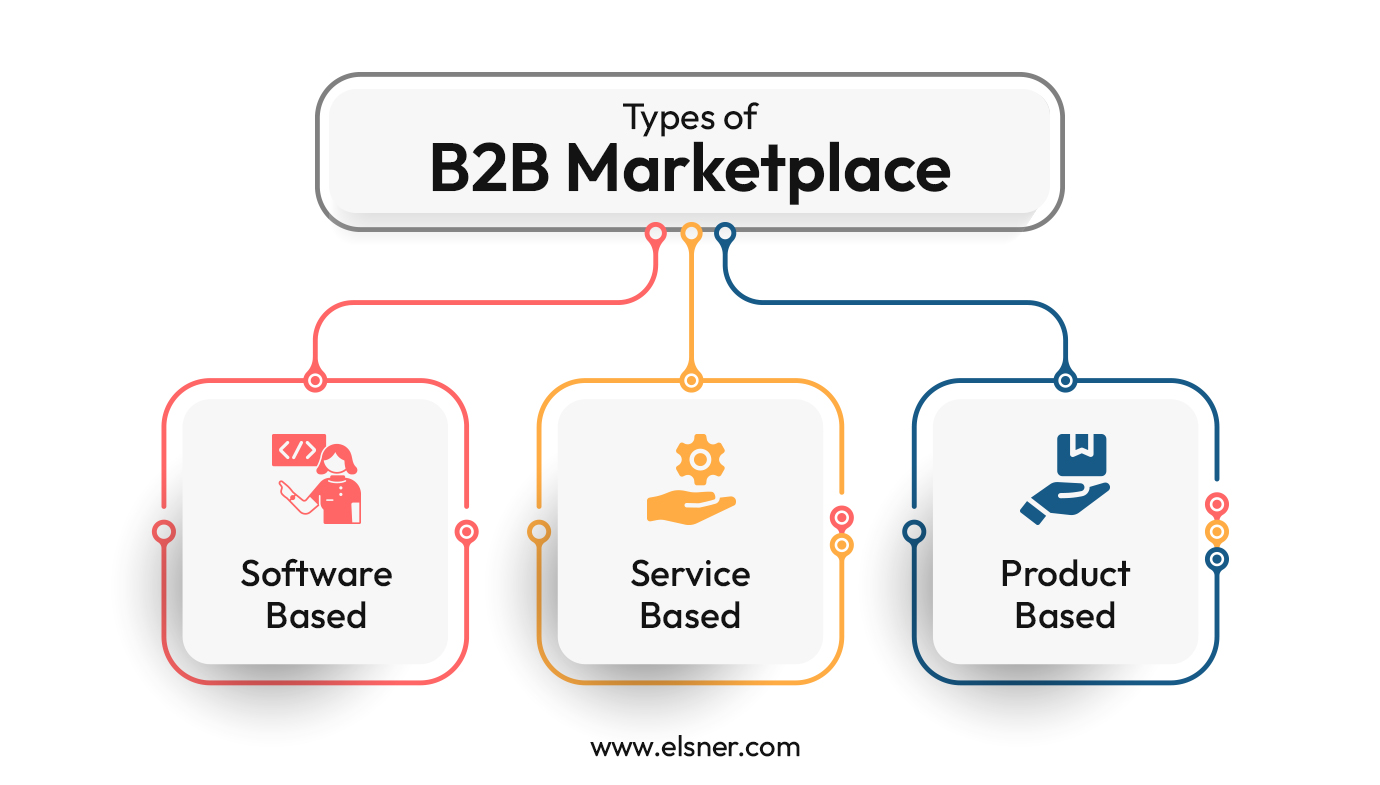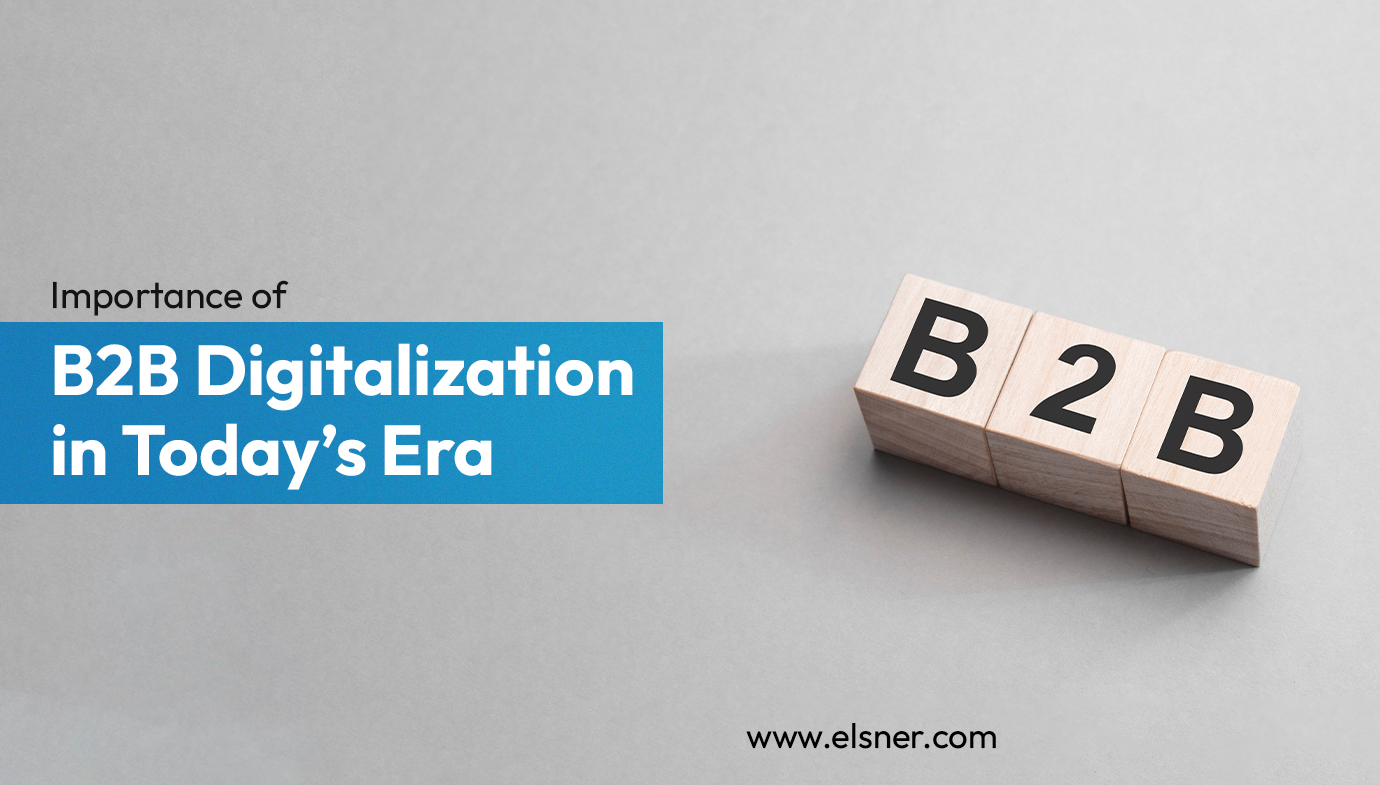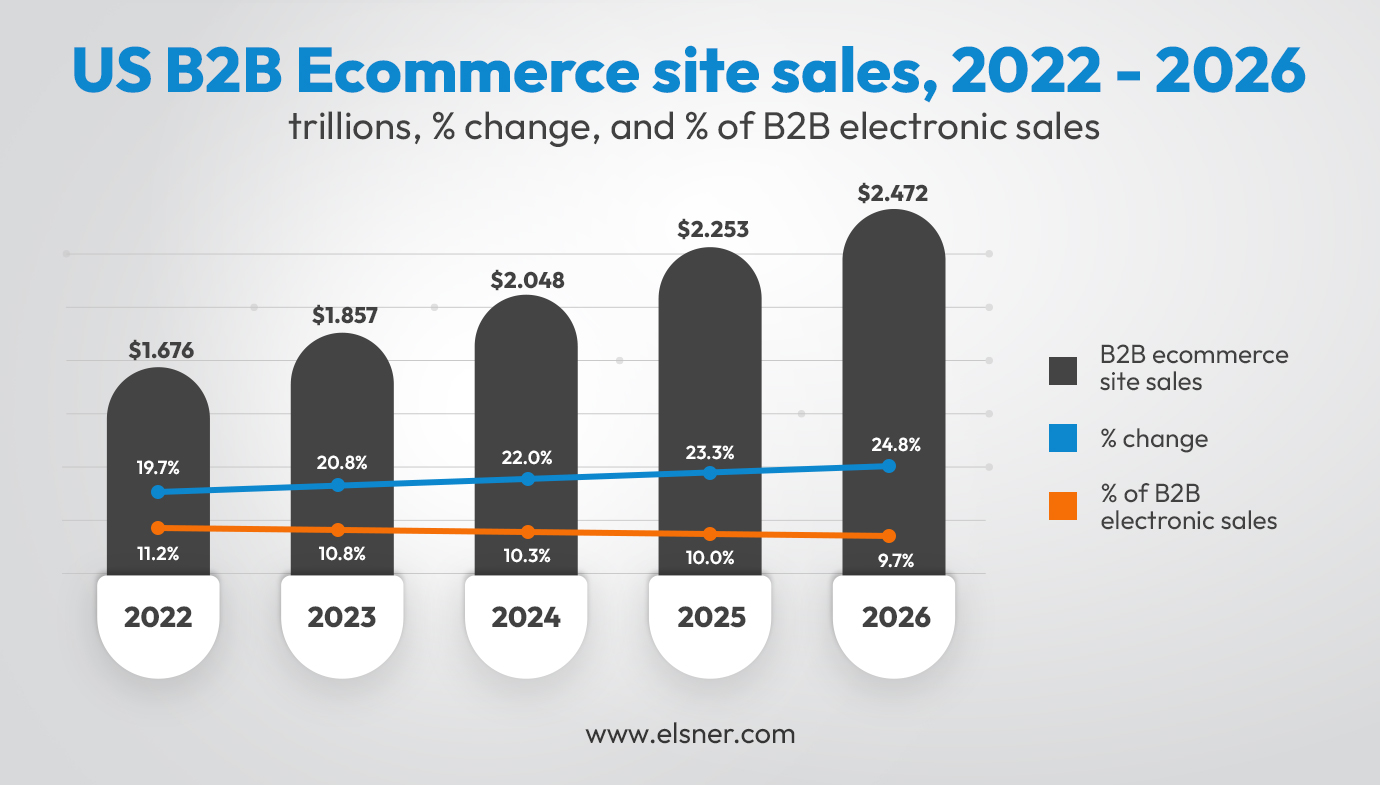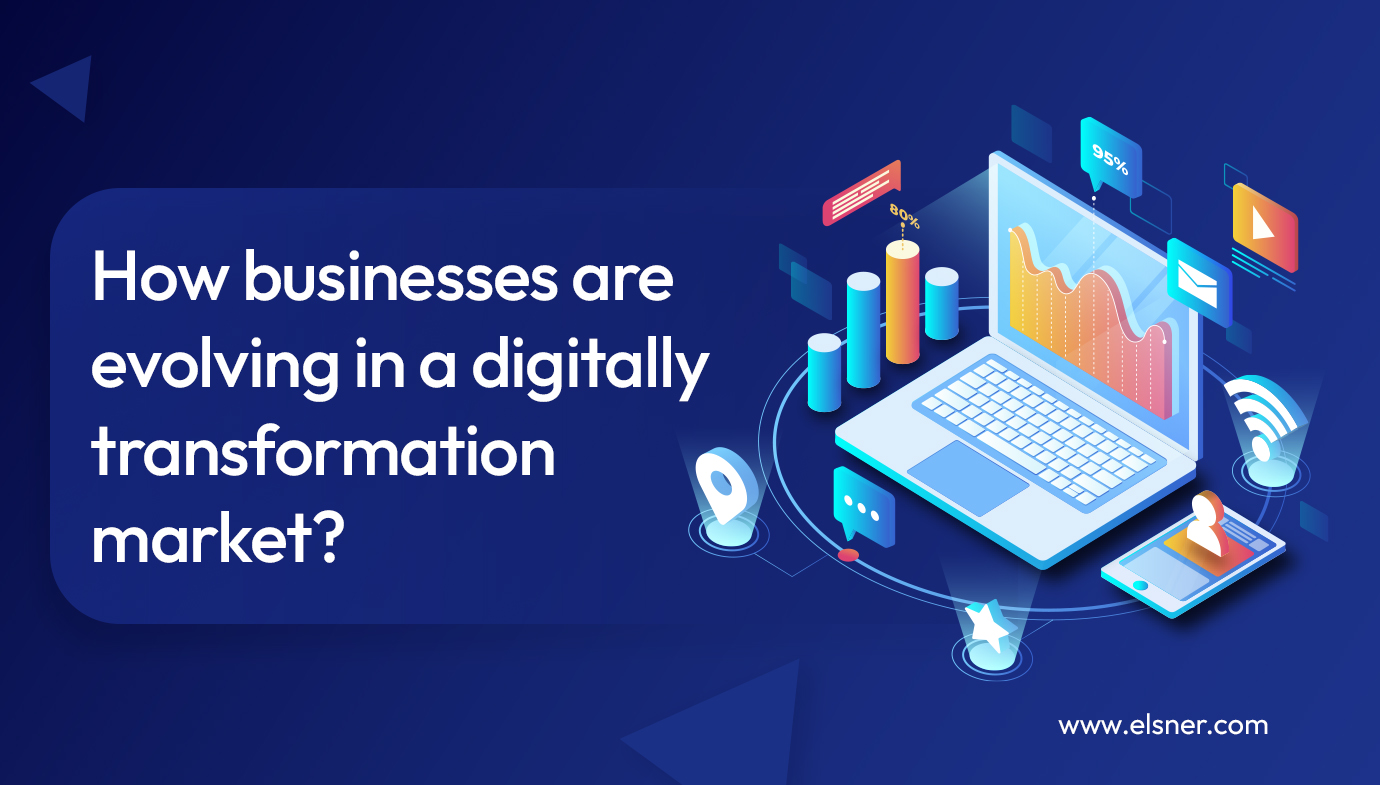- Why deal with B2B?
- How are B2B Marketplaces Driving Digital Transformation?
- Positives of the B2B Markets
- Future Trends in B2B Marketplaces
- Experts Thoughts:
- Digital Expert 1: Logan Mallory – motivosity
- Digital Expert 2: Stefan Chekanov – brosix
- Digital Expert 3: Stanislav Khilobochenko – clario
- Digital Expert 4: Jamie Irwin – James and James Fulfilment
- Summing Up
Business-to-Business (B2B) digital marketplaces have grown significantly over the past several years, and for a good reason. Online marketplaces provide various benefits that conventional B2B trade channels do not.In this article, we’ll talk about the value of digital B2B markets and how they may help firms.
Why deal with B2B?
- Digital B2B markets allow companies to expedite their procurement and purchase procedures. In traditional B2B commerce, companies must manually find and contact prospective suppliers, discuss price and payment conditions, and make shipment and delivery arrangements.
- Companies may swiftly and simply search for the goods and services they require, evaluate costs and features, and make purchases in minutes thanks to digital B2B marketplaces. Businesses can benefit greatly from this efficiency since it can help them save time and money.
- Businesses may concentrate on other areas of their operations, such as marketing, product development, and customer support, by automating many activities in purchasing and procurement.
- Digitization may assist B2B businesses in enhancing their clientele. Using digital channels, companies may provide their clients with a smooth and customized experience.
- Companies may provide self-service options, such as online tracking and ordering, which would increase efficiency and convenience. Companies may also utilize data analytics to foresee their clients’ requirements and gain a deeper understanding of them. They may be able to offer more pertinent and focused answers as a result.
- Digitization may aid B2B businesses in reaching new markets. Businesses may contact clients in new areas and grow their customer base with the help of digital marketing. They can advertise their goods and services using social media, search engines, and other online resources.
How are B2B Marketplaces Driving Digital Transformation?

Positives of the B2B Markets
B2B marketplaces are becoming increasingly popular for businesses to buy and sell goods and services. Here are some reasons why B2B marketplaces are the future of business:
- Increased visibility
B2B marketplaces also enable businesses to build their brand and reputation by providing them with a platform to showcase their products or services. This increased visibility and exposure can help businesses to attract new customers, expand their reach, and ultimately grow their business. In addition, B2B marketplaces often provide businesses with tools and analytics that can help to optimize product listings and improve their visibility on the platform.
- Access to a broader range of suppliers and buyers
B2B marketplaces provide access to a broader range of suppliers and buyers from various industries and geographies, which can help businesses to find new partners and expand their reach, regardless of their physical location. This can help businesses discover new products or services they may not know about before and find new suppliers or buyers to help them grow their business.
- Streamlined transactions and reduced costs
Another significant benefit of online B2B markets is the ability to save expenses. These markets don’t have to incur the same overhead expenses as more conventional B2B trade because they are online. This translates into cost savings for firms on rent, utilities, and staff compensation.Also, compared to conventional forms of trade, digital B2B marketplaces sometimes have cheaper transaction fees, which can help firms cut expenses even more.Businesses may also develop new revenue streams by using digital B2B marketplaces. For instance, companies can use the market to provide supplementary goods or services or sell extra inventory. They may be able to boost their profitability and produce more income.
- Improved customer experience
B2B marketplaces can help to improve the customer experience by providing a more user-friendly interface, better search and recommendation algorithms, and more comprehensive product and service information. This can help to simplify the buying process, making it easier for customers to find the products or services they need, compare prices and features, and place orders.
- Competitive advantage
B2B marketplaces can help businesses to gain a competitive advantage by providing access to new customers, suppliers, and partners, as well as new technologies and innovative solutions to help streamline operations and better serve their customers. Can gain access to a wider range of customers, which can help to expand and boost business.
Future Trends in B2B Marketplaces
- Increased adoption of artificial intelligence and machine learning: B2B marketplaces are expected to increasingly adopt machine learning and artificial intelligence to drive growth and provide users with more personalized & efficient services.
- Growing usage of blockchain: Blockchain technology has the potential to revolutionize the B2B marketplace by providing greater transparency and security in transactions.
- Greater emphasis on mobile: As more people use mobile devices to conduct business, B2B marketplaces must ensure that their platforms are optimized for mobile devices.
- Expansion into new markets: B2B marketplaces are expanding into new markets, including emerging economies, which offer significant growth potential.
- Focus on sustainability: B2B marketplaces are increasingly focusing on sustainability and environmentally friendly practices to meet the demands of socially conscious customers.
- Increased emphasis on customer experience: B2B marketplaces will need to focus more on the customer experience to retain customers and stand out in an increasingly competitive marketplace.
- Greater use of data analytics: B2B marketplaces will need to use data analytics to gain insights into customer behavior and preferences and to identify new business opportunities.
Experts Thoughts:
We have asked multiple industry experts to share their thoughts on the Importance Of B2B Digitalization. Below are some Digital expert’s statements:
Digital Expert 1: Logan Mallory – motivosity
VP
at Motivosity shares thoughts on the Importance Of B2B Digitalization:
B2B digitalization is the process of putting all of your products or services in one centralized online location. This makes it easier for companies to not only find your business online but also to get all of the information they need to make an informed decision about whether to make a purchase. This saves time and resources, as companies can compile a list of businesses to contact after already doing preliminary research. This makes discovery and sales call more effective and speeds up the entire sales process.
Digital Expert 2: Stefan Chekanov – brosix
Co-Founder and CEO
at brosix shares thoughts on the Importance Of B2B Digitalization:
B2B digital marketing refers to a market where businesses are the purchasers of goods and services from other businesses. These other businesses need what you have in order to complete their own products or services or to improve or maintain their business operations.
The reason B2B marketing is important is that it makes other businesses familiar with your brand name, and the value of your product or service, and convert them into customers. HubSpot is an example of a company that engages in B2B marketing.
Digital Expert 3: Stanislav Khilobochenko – clario
VP of Customer Services at Clario shares thoughts on the Importance Of B2B Digitalization:So in a nutshell, B2B digitization is integrating digital tech into the operations and processes of businesses that serve other businesses. It could be as simple as using accounting software instead of paper books or an e-commerce platform, for example.The increase in digitization means an increase in cybersecurity risks. The good news is that the same digitization provides opportunities to make your processes and operations more secure overall through data protection, encryption, firewalls, and machine learning designed to detect fraud.Automating processes in supply chain management also reduces security risks, because the supply chain is more visible at a glance. Not only can AI tools be used to detect fraud or issues, but human judgment is better able to process the big picture if all the information is laid out cleanly and concisely. Automation can also mean less human error, making supply chain management more efficient and consistent.
Digital Expert 4: Jamie Irwin – James and James Fulfilment
E-commerce Growth Expert at James and James Fulfilment share thoughts on the Importance Of B2B Digitalization:Digitalization is the process of converting information into a digital format. In other words, it is the application of digital technologies to traditional business processes. There are many benefits of B2B digitalization, including improved supply chain efficiency and transparency. By digitizing the supply chain, businesses can track shipments more accurately, identify potential issues sooner, and avoid delays and disruptions. This leads to improved customer satisfaction and loyalty and increased profits. By digitizing information, businesses can avoid the need for paper-based communications and make it easier to share information internally and with partners. B2B digitalization also improves communication and collaboration between businesses.B2B digitalization can help businesses save time and money by reducing manual processes and increasing automation. For example, automating purchase orders can save businesses considerable time and effort regarding data entry, order processing, invoicing, etc. Automation can also reduce errors and improve accuracy throughout the supply chain. Digitized supply chains are more efficient because they can be automated and monitored more easily. This leads to reduced costs and improved delivery times. In addition, digitalization can improve transparency by providing visibility into all aspects of the supply chain. This helps businesses identify issues and potential areas for improvement.
Summing Up
In conclusion, B2B marketplacesoffer numerous solutions that can help businesses to succeed in the digital age. It has a proven track record of success in developing and managing B2B marketplaces, enabling businesses to access new markets, increasing efficiency, and enhancing customer experience. Many experienced teams of professionals are dedicated to providing high-quality services to our clients, from strategy development to implementation and ongoing support. They will leverage the latest technologies to ensure clients stay ahead of the competition.Businesses can gain a competitive advantage in the digital landscape and achieve long-term success.





